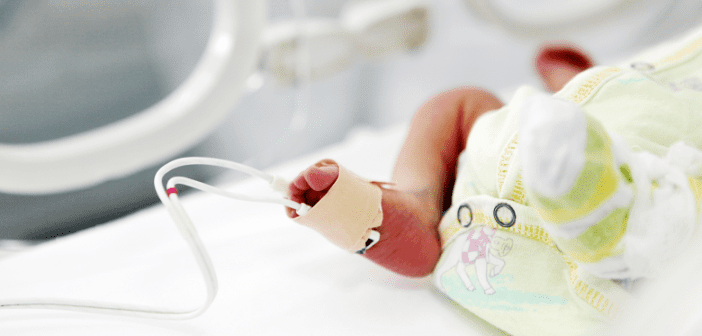A British couple is fighting for the right to seek treatment for their seven-month-old son. The Daily Mail reports that Connie Yates and Chris Gard are desperate to continue care for their son, Charlie, and seek experimental treatment for him in the United States. The baby boy suffers from an extremely rare genetic condition. The hospital currently caring for Charlie, Great Ormand in London, has requested that the High Court allow doctors to remove Life support.
Charlie suffers from an extremely rare condition known as mitochondrial depletion syndrome, which causes extreme weakness in every organ of the body. He appeared healthy at birth, and the Daily Mail reports he delighted his parents by smiling at six weeks old. Two weeks later, his mother noticed something was wrong, as Charlie was losing weight and appeared weaker and weaker. Charlie is reportedly only the 16th person in the world to be diagnosed with a particular kind of mitochondrial disorder, and he has spent the last five months in the hospital on Life support.
Charlie’s devoted dad told the Daily Mail, “When the hospital lawyer said that about ‘every day that goes by isn’t in the child’s best interests,’ that was a like a knife to our hearts. We do not agree, because we can see Charlie is comfortable. He is growing and looks bonny – not signs of a child in any pain.” While the hospital is arguing in court that Charlie’s case is hopeless, Yates and Gard say they have found experimental treatment in the United States and a doctor who is willing to treat their son.
The judge presiding over Charlie’s case granted the family until April 3 to make the case that the experimental treatment has a chance of success. Yates and Gard are now racing against the clock to save their son’s Life. His mother told the Daily Mail after the court hearing, “Today made us realise the magnitude and the huge battle we face. Yet we have taken strength by all the support we have received…It has helped us so much to read these messages and know how much the public are supporting us.”
Before April 3, the family is also raising money to transport their very ill son to the United States and pay for the experimental treatment. They estimate that they will need well over one million dollars.
In this tragic case, the very people who should be caring for Charlie, the hospital staff, are trying to end his Life. Unfortunately, Charlie’s case is not unique. In Texas, for example, current law allows hospitals remove care, thus ending a patient’s Life. The Texas Advance Directives Act (TADA- Chapter 166.046, Health and Safety Code) allows hospitals to act against the expressed wishes of the patients and their families. The hospital’s own internal committee can decide to withdraw life-sustaining treatment for any reason —ending the Life of the patient— with only ten days’ notice.
Charlie’s struggle to continue care and his parent’s desperate struggle to maintain their parental rights is an urgent reminder that Texas must reform TADA.

